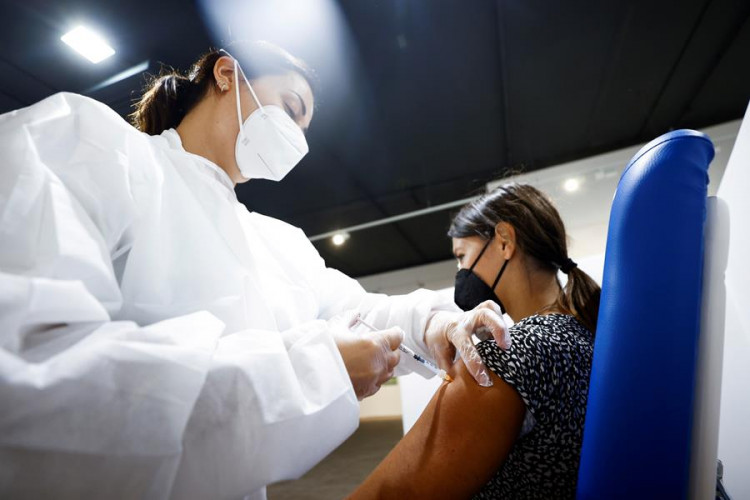A new coronavirus variant called "Mu" has been added by the World Health Organization to its "Variants of Interest List," the global health body disclosed in its weekly pandemic bulletin Tuesday.
Scientifically known as B.1.621, Mu -- the 12th letter of the Greek alphabet -- was included in the new watchlist on August 30 after it was discovered in 39 countries.
Based on the latest findings, the new strain is composed of a cluster of mutations that indicate it could potentially be more impervious to current COVID-19 vaccines. Further research was required to validate this.
Since its detection, Mu has been reported in Europe and South American nations. A report by the Public Health England in July revealed that most were detected in London and in people in their 20s.
Although the new variant makes up just 0.1% of the world's COVID-19 cases, its widespread presence in South America has been on the rise.
Mu currently makes up almost 40% of infections in Colombia and 13% in Ecuador. It was first detected in Colombia in January this year.
Scientists and researchers in the Philippines have not yet detected cases of the Mu variant.
Epidemiologists and scientists are particularly anxious to know whether Mu is more contagious, or causes more serious illness compared to the Delta variant that has been dominant in many parts of the globe.
New strains are added to the WHO's Variants of Interest if they exhibit genetic transformations that are either projected or known to alter the virus' rate of transmissibility, severity, immune evasion, or therapeutic escape, health authorities said.
VOI differ from Variants of Concern (VOC), which reduces the efficacy of public health and social protocols or diagnostics and therapeutics.
The WHO said the epidemiology of the Mu variant in South America, "particularly with the co-transmission of the Delta variant, will be monitored for changes."
Worldwide, there are currently 218 million COVID-19 cases. Some 4.53 million have died from the disease.
Aside from the Mu variant, the WHO is also monitoring four other VOIs -- Iota, Eta, Kappa, and Lambda.
Another four VOCs are also being closely monitored - Alpha, Beta, Gamma, and Delta.





